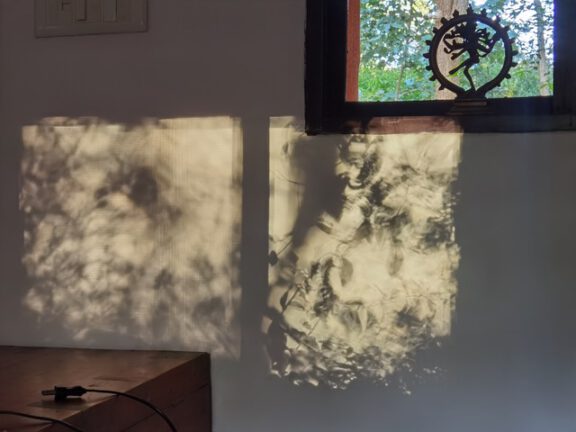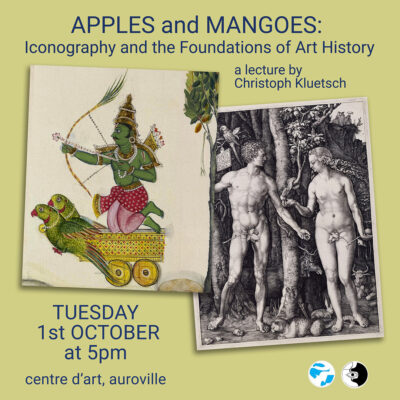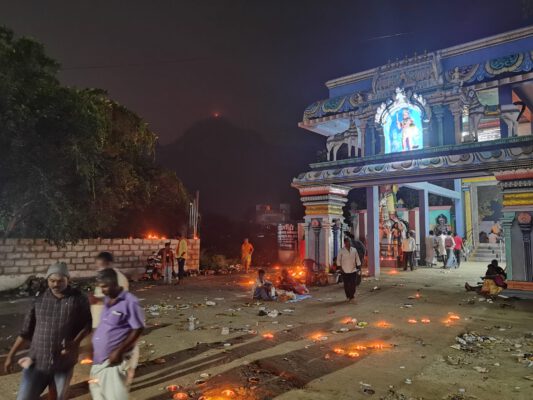Se have been living with a neurotic dog for a few weeks now. She barked a lot while she still perceived me as a stranger. She kept her distance and was frightened. After a few weeks, she accepted me, approached me and wanted to be stroked. Now she lies at my door and keeps watch; she protects me. What happened? I haven't changed my attitude towards her. I have little connection with dogs and pay her little attention. I am relatively indifferent. But something fundamental has changed with her. It's hard for me to ask her questions, we don't speak the same language. But I seem to have become part of her world. She remembers me, I have become familiar to her. In her world I was a stranger, a threat; now I am a confidant, part of her world, perhaps one day a friend. The possibility exists.
How can I become part of a world that is someone else's world? I think it has a lot to do with memory. I become part of the memory of others. The same applies to me, of course. A new world of experience builds up, especially when I move to a new world, e.g. from Europe to India. Everything is new, strange; I am not afraid, but rather fascinated and curious. All the new impressions - the objects and nature, the people and the culture - become part of my memory. They are integrated into what is my world.
I have been attending a workshop on Tantra philosophy for the last few days. I learned the 36 tattvas, some new meditation techniques, the difference between western science and shastras (knowledge systems). I heard reports of things that are considered impossible in the western world (e.g. alchemy and telekinesis). In essence, Tantra is about the relationship between two forces: Shiva and Shakti, and this on all levels of being, i.e. on the material level, the level of life, consciousness, mind, spirituality, the cosmos, pure existence... It is about understanding that what holds the world together inside is not empirical science. Empirical science is the method that our minds have mastered relatively well since modernity; but it explains very little of what makes up our living world.
But what makes up our world? It is the inner experience, and the approaches to this are through reflection, devotion, meditation and yoga. Tantra seems to be undogmatic here. Every path is okay: never value the path of others, after all, the world is much bigger and more complex than any of us can even imagine. Fate and chance have a complex relationship; spiritual practice, sadhana, shows the way.
But at the moment I'm interested in the Memory and the memory. Memory is the vessel, memory is the content, experience is its history and structure. Memories are images; they are within us and can be actively remembered, appear unasked, be associated more or less by chance. They form our identity. And just as the world outside me becomes part of my memory, I naturally become part of other consciousness if I was part of that experience. And just as I forget many things, I will also forget. That is okay. Sometimes, however, something imprints itself and becomes an integral part.
I'm slowly getting to the point I want to make here. We have cultural techniques to share these memories, our memory, our experiences, our identity and our world view. Through language, text, images, expression through dance, theater, music, mantras, tantras. There are 64 kalas (art forms) in India. Over thousands of years, techniques have been perfected to refine the process of this communication. The resulting aesthetic theories are manifold. In the West, for example, the mechanism of representation is very important; in the Eastern tradition, rasa is more important, i.e. the expression of essence, the essential. Since the 19th century, we have had technical devices such as the camera, the cinematograph and the gramophone as an extension of older printing techniques. So we have found a technique not only to materialize memory (as many art forms do), but also to automate and reproduce it. I think this has created a great deal of confusion.
Gilles Deleuze, with reference to Henri Bergson, has created clarity here by recognizing that film is thinking.







